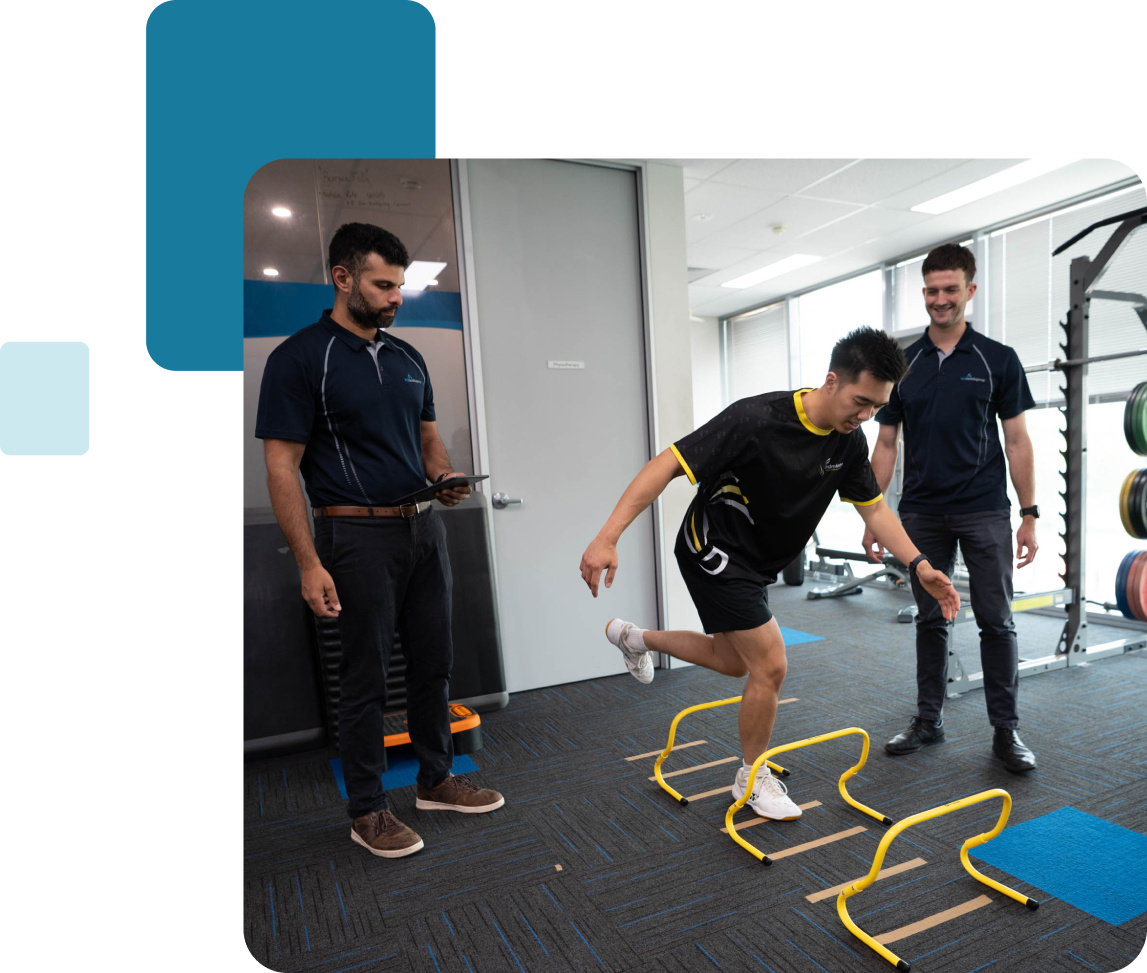What Conditions Can Physiotherapy Assist With?
Physiotherapists can help manage a wide range of conditions, including musculoskeletal pain, arthritis, sports and workplace injuries, post-surgical recovery, and neurological conditions such as stroke or spinal cord injury.
How Can Physiotherapy Support Pain Management?
Physiotherapists use evidence-based techniques such as exercise, manual therapy, education, and self-management strategies to help people manage pain and improve function.
What Happens During My First Physiotherapy Session?
Your physiotherapist will discuss your health history, assess your movement, and create an individualised care plan based on your goals and needs.
How Long Does a Physiotherapy Session Last?
Most sessions last 30–60 minutes, depending on the assessment and treatment required.
Do I Need a Doctor’s Referral?
You don’t need a referral to see a physiotherapist, though one may be required for some insurance claims.
How Many Sessions Will I Need?
This depends on your condition and progress. Your physiotherapist will discuss an appropriate treatment plan during your initial consultation.
Is Physiotherapy Covered by Insurance?
Many private health insurers include physiotherapy in their extras cover. Check with your provider for details.
What Techniques Do Physiotherapists Use?
Physiotherapists may use exercise programs, manual therapy, dry needling, electrotherapy, and education to support recovery and movement. Techniques vary depending on your condition and individual needs.
Can Physiotherapy Help with Sports Injuries?
Physiotherapists commonly work with sports-related injuries to assist with safe return to activity and support injury prevention strategies.
How Can Physiotherapy Support Pregnancy and Postnatal Health?
Physiotherapists can assist with managing physical changes during and after pregnancy, supporting pelvic floor function, and providing safe exercise guidance.
What Should I Wear to My Appointment?
Wear comfortable, loose-fitting clothing that allows easy movement.
Can Physiotherapy Help Prevent Injuries?
Physiotherapy may help reduce injury risk by addressing movement patterns, strength, and flexibility through tailored exercise programs.
What’s the Difference Between Physiotherapy and Chiropractic Care?
Physiotherapy addresses a broad range of physical issues using exercise and manual therapy. Chiropractic care primarily focuses on spinal alignment. Both aim to support physical function and mobility.
How Do I Book an Appointment?
You can book online or contact any WA Health Group clinic directly. Our staff can help arrange a time that suits you.
What is Vestibular Physiotherapy?
Vestibular physiotherapy includes exercises and strategies to help manage dizziness and balance issues related to vestibular disorders such as BPPV.
What is Active Physiotherapy?
Active physiotherapy involves exercises and movement-based care to encourage patient participation in recovery and long-term self-management.
What is Pilates Physiotherapy?
Pilates physiotherapy combines physiotherapy principles with Pilates-based exercises to improve posture, flexibility, and core control.
How is Physiotherapy Different from Massage Therapy?
Physiotherapy addresses injury, function, and rehabilitation using clinical assessment and exercise. Massage therapy focuses on soft tissue techniques for relaxation and tension relief.
When Should I Start Physiotherapy After an Injury?
Early physiotherapy may be helpful, but timing depends on the injury type and severity. Your physiotherapist can advise on the best time to begin.
Can Physiotherapy Assist with Headaches or Migraines?
Physiotherapy may help manage certain headaches linked to muscle tension or neck issues through posture education and movement exercises.
How Can I Prepare for My Appointment?
Bring any relevant scans or reports, wear comfortable clothing, and be ready to discuss your symptoms and goals.
What is Dry Needling?
Dry needling uses fine needles on specific muscle points to help manage tension or discomfort. It’s one of several techniques physiotherapists may use.
Can Physiotherapy Help with Respiratory Conditions?
Physiotherapy can assist with breathing exercises, airway clearance, and physical conditioning for some respiratory conditions.
How Can Physiotherapy Support Diabetes Management?
Physiotherapists can guide safe physical activity and exercises to support mobility and help manage complications related to diabetes.
Can Physiotherapy Benefit Mental Health?
Improved mobility and reduced physical discomfort may have a positive effect on wellbeing. Exercise prescribed by physiotherapists can also support mood and stress management.
Can Children Benefit from Physiotherapy?
Yes, paediatric physiotherapy supports children with developmental, neurological, or musculoskeletal needs through age-appropriate exercises and care.
What is Telehealth Physiotherapy?
Telehealth physiotherapy provides consultations via video calls. It includes assessment, exercise guidance, and self-management strategies from home.
What is Aquatic Physiotherapy?
Also called hydrotherapy, this involves guided exercises in warm water to support mobility and reduce joint load.
How Can Physiotherapy Help Manage Osteoporosis?
Physiotherapists may prescribe weight-bearing and balance exercises to help maintain bone health and reduce fall risk.
Can Physiotherapy Support Weight Management?
Physiotherapists can develop activity programs to help increase movement safely and support overall health.
What Are Group Physiotherapy Classes?
Group sessions provide supervised exercise programs in a supportive setting, encouraging participation and consistency.
How Can Physiotherapy Support People with Cancer?
Physiotherapy can assist with movement, fatigue management, and maintaining strength during and after cancer treatment, depending on individual needs.















